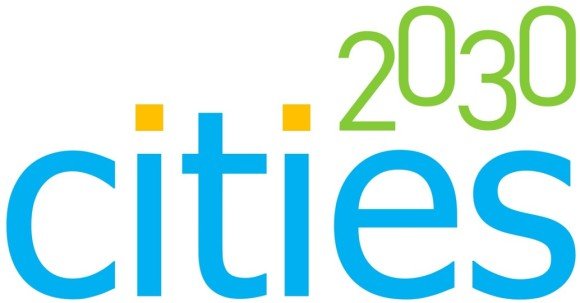- Welcome page
- CRFS Development
- Policy LAB
- Policy: Policy Action Plan
- Living: Innovation action plan
- Stories from the LAB
- LL Experiment 1 - Going well in Lehe
- LL Experiment 2 - Local Bread for Local Kids
- LL Experiment 3 - Scavenger Hunt
- LL Experiment 4 - Reducing food waste in daycare centres
- LL Experiment 5 - citizen science “Lemon of the North”
- Joining PL & LL >> OUR LOCAL HEROES
- Innovation frameworks
- Members
- Access history
- Lab Festival

Policy: Policy Action Plan
Resources & Context
| Stakeholder name | Expertise/skills | Link to CRFS theme |
|
Foodboard Bremerhaven Region |
Farmers, food processors, schools, kindergartens, academia, parents, city administration |
production, processing, distribution, market, consumption, waste, inclusion |
|
Department f. Schools/Education |
task force school catering | consumption, waste, security, inclusion |
| afz Bremerhaven | Quartermaster: urban gardening/urban farming, urban pergola | production, consumption, inclusion |
| Policy Makers | Local parties, no expertise on CRFS | consumption, waste, security, inclusion |
| Youth Climate Council | Implementation of sustainability-related local projects | consumption, waste, security, inclusion |
Bremerhaven Vision
Policy landscape
Aim: Identify policy gap
| CRFS policy | Description |
| Production | |
|
Fairtrade Town Bremerhaven
https://www.fairtrade- |
Fairtrade Towns promote fair trade at the municipal level and are the result of a successful network of actors from civil society, politics and business who work together locally to promote fair trade. The commitment of many people shows that change is possible and that everyone can make a difference. |
| Distribution | |
|
DGE quality standard
https://www.dge.de/gv/dge- |
The DGE quality standards support those responsible in day-care centres, schools, companies, hospitals and rehabilitation clinics, senior citizens' facilities as well as employees of "meals on wheels" in offering balanced meals. On behalf of the Federal Ministry of Food and Agriculture (BMEL), the DGE developed quality standards for different living environments. |
| Consumption | |
|
Biostadt Bremen https://www.biostadt.bremen.de |
We want to make healthy and organic food possible for everyone. With the Action Plan 2025, Bremen has set itself the goal of switching the food in municipal schools, day-care centres and hospitals to organic. BioStadt Bremen coordinates the implementation and supports the process with a variety of measures and campaigns. |
| Security | |
| Food and Feed Code |
The new LFGB covers all production and processing stages along the food value chain and applies not only to food and consumer goods but also to animal feed and cosmetics. The top priority is food safety. The manufacturer, trader or distributor must ensure the flawless quality of the goods. The traceability of products must be guaranteed at all stages of processing in the agribusiness. |
|
German Food law (EU Regulation (EC) No. 178/2002 |
is a cross-sectional matter between consumer protection, hazard prevention and trade law. It regulates the treatment and production of food and includes legal and administrative regulations for food at both European and Member State level. Food law is not only intended to protect the health of the population, for example against food crises, but also to regulate competition on the food markets through quality requirements and protection against deception. The EU has taken an important decision in the field of food law with EC Regulation No. 178/2002 by establishing a European Food Safety Authority and has also reacted by adopting general principles in the field of food law. |
| Ecosystem | |
|
Guideline for the promotion of projects for the implementation of the Action Plan 2025 - Healthy Nutrition in Community Catering of the Municipality of Bremen. (City of Bremen only) |
The basis of this funding guideline, which is limited to the municipality of Bremen, is the guiding principle of a climate and environmentally compatible development of the food industry. With the "Action Plan 2025", Bremen was the first city in Germany to decide that the catering offered in schools, municipal day-care centres, hospitals, and public canteens, should be converted to up to 100% organic products. |
| Livelihood | |
|
The National Action Plan "IN FORM - Germany's Initiative for Healthy Nutrition and More Physical Activity" https://www.in-form.de |
The National Action Plan "IN FORM - Germany's Initiative for Healthy Nutrition and More Physical Activity" pursues the goal of sustainably improving nutrition and physical activity behaviour in Germany. |
Strategy development
Aim: define a lab narrative
| CRFS status quo |
|
Focus: Communal catering (focus can be extended in further steps if required) Topics: Visions, obstacles & solutions, network Laying the foundations: Political representatives need basic knowledge about the topic (rudimentary knowledge available). Participants: Invite actors from politics, administration, business (agriculture, processing, logistics, sales outlets). Important stakeholders: Youth Climate Council (also sit in the political bodies), Food Council, Youth Climate Council (e.g. establish a regulars' table (regular meetings, open regulars' table atmosphere or impulse lecture + impulse lecture), Integrate Initiative "knowledge creates living space", continue existing topics on a smaller regional scale. Basics: Demonstrate to politicians and other stakeholders the added value of the CRFS (economic development, education, inclusion, etc.); in addition, the docking possibilities to the coalition agreement need to be clarified (to what extent are political objectives taken up by Cities 2030?). Involve and pick up politics, administration, economy, politics has to commit itself |
Bremerhaven Pathway to Action
SWOT
| Strength |
|
Existing food board, existing project activities with multiple stakeholders before Ciu ́ties2030 (Wissen shaft Lebensraum), existing Youth climate council, schools and kindergartens which are currently aiming to find practical solutions for a sustainable food supply in their newly planned catering / kitchens. |
| Weaknesses |
| Not enough politicians with raised awareness for CRFS related themes and/or expertise on CRFS. Lack of ownership in administration and politics regarding CRFS. |
| Opportunities |
|
Participation in the CRFS process opens a wide range of opportunities for our stakeholders. They will actively implement plans of action relevant to sustainability and influence local policies. We can use the high level of commitment of the Food Council and the Youth Climate Council to draw attention to the policy and support the goals. With the AfZ and schools as stakeholders, we can create school and extracurricular learning spaces for all to create awareness for a stable CRFS. |
| Threats |
|
Climate change and its impact on local food production, water scarcity, inflation / price increases in production and trade, impact by Covid-pandemic, in view of the Ukraine war and its effects, the focus of political attention could be more on the energy crisis. |
SMART goals
Aim: Select priority CRFS pilot topics
| Goal |
S specific |
M measurable |
A attainable |
R relevant |
T time-based |
Theme |
| Goal 1 |
Raise decision makers’ |
6 policy labs held with stakeholders and decision makers |
interest / understanding / commitment of decision makers |
clear ownership in administration and politics regarding CRFS |
End of 2024 |
production, processing, distribution, market, consumption, waste, security, ecosystem, |
| Goal 2 |
Develop robust regional CRFS |
2 schools and 1 kindergarten establish regional catering system |
not enough producers, lack of staff |
community catering serves as good practice and an example for others to follow |
3rd quarter 2024 |
production, distribution, consumption, waste |
| Goal 3 |
Establish permanent CRFS-network of stakeholders and decision makers Round Table: "Nutrition Community Facility” |
Establish permanent CRFS-network of stakeholders and decision makers Round Table: "Nutrition Community Facility” |
too many other challenges with higher priority |
Consolidating cooperation in the PL as a permanent working group |
production, processing, distribution, market, consumption, waste, security, ecosystem, livelihood and inclusion |
|
| Goal 4 | Establish CRFS policy | 1 new policy instrument |
interest / understanding / commitment of politicians |
Basis for robust CRFS | End of 2023 |
production, processing, distribution, market, consumption, waste, security, ecosystem, livelihood and inclusion |
| Goal 5 |
Establish local CRFS office “Network office for school and day-care catering” |
1 new central multidisciplinary unit responsible for the regional CRFS |
interest / understanding / commitment of politicians |
facilitator for ongoing development and consolidation of CRFS |
End of 2024 |
production, processing, distribution, market, consumption, waste, security, ecosystem, livelihood and inclusion |

